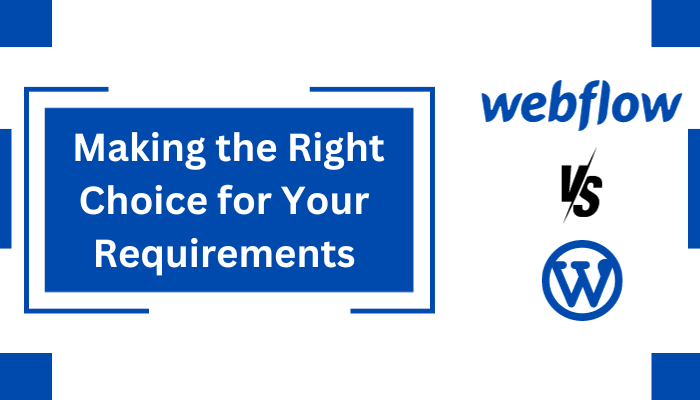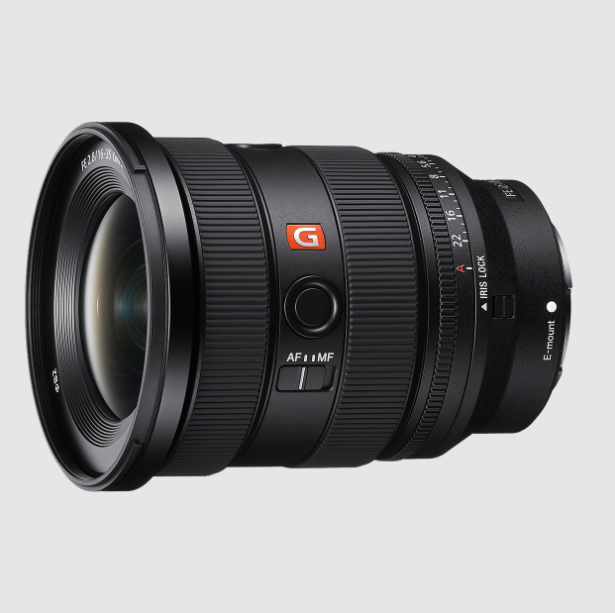Introduction
1.Overview of Webflow and WordPress
In the vast landscape of website development, two powerful platforms stand out – Webflow and WordPress. Both offer unique capabilities, and your choice between them can significantly impact your online presence.
2. Importance of choosing the right platform
Selecting the right platform is crucial for the success of your website. Your decision will influence not only the ease of development but also your website’s functionality and scalability.
3.Briefly touch on the comparison between Webflow and WordPress
Before diving into the details, let’s briefly compare Webflow and WordPress to get a better understanding of what each brings to the table.
An Overview of Webflow
1.Define Webflow
Webflow is an innovative website builder and content management system (CMS) that empowers users with a code-free approach to web design.
2.Key features and benefits of using Webflow
Responsive Design: Webflow excels in creating responsive, mobile-friendly websites.
Customization: The platform allows for deep design customization and creative freedom.
Interactions and Animations: Easily incorporate interactive elements and animations.
Hosting: Webflow provides robust hosting solutions for your site.
3.Highlight examples of websites built with Webflow
Webflow has been used to create stunning websites across various industries, from e-commerce stores to personal portfolios.
4.Discuss ease of use and customization options
Webflow’s user-friendly interface makes it accessible to beginners while offering advanced customization options for experienced designers and developers.
An Overview of WordPress
1.Define WordPress
WordPress is a versatile and widely used CMS, known for its flexibility and extensive range of themes and plugins.
2.Key features and benefits of using WordPress
Plugin Ecosystem: Access thousands of plugins to extend functionality.
Themes: Choose from a plethora of themes to create a unique website.
Blogging: WordPress is renowned for its blogging capabilities.
Community: A large and active community of developers and users.
1.Discuss the vast plugin and theme options available
WordPress offers an extensive library of plugins and themes, providing solutions for nearly every website need.
2.Highlight examples of popular websites built with WordPress
WordPress powers some of the world’s most famous websites, including blogs, news outlets, and corporate sites.
Comparison Between Webflow and WordPress
Design and Customization
1.User interface and ease of design
Webflow’s intuitive drag-and-drop interface offers a streamlined design process, while WordPress may require some familiarity with themes and page builders.
2.Customizability and flexibility
Webflow allows pixel-perfect design control, but WordPress offers greater flexibility in terms of themes and plugins.
3.Integration with design tools
Webflow is an all-in-one solution, while WordPress often integrates with popular design tools and plugins.
Development and Coding
1.Differences in coding languages and skills required
Webflow is code-free, whereas WordPress may require some knowledge of HTML, CSS, and PHP for advanced customization.
2.Access to the codebase for customization
Webflow restricts access to the codebase, while WordPress provides full access for developers to customize.
3.Developer community and support
Both platforms have active developer communities, but WordPress’s community is more extensive due to its open-source nature.
Hosting and Performance
1.Webflow’s hosting and performance capabilities
Webflow’s hosting is reliable, with fast loading times, automatic scaling, and security features.
2.WordPress hosting options and performance considerations
WordPress hosting varies, with shared, managed, and self-hosted options. Performance depends on your hosting choice.
3.Scalability and handling high traffic
Webflow can handle high traffic, but WordPress’s scalability depends on your hosting resources.
Pricing and Cost Comparison
1.Webflow’s pricing plans and features
Webflow offers tiered pricing, with additional costs for hosting and e-commerce features.
2.WordPress’s cost structure and potential expenses
WordPress is free, but expenses can arise from hosting, premium themes, and plugins.
3.Considerations for budget-conscious individuals or businesses
WordPress is often more budget-friendly, while Webflow’s pricing may be higher for advanced features.
Choosing the Right Platform for Your Requirements
1.Identify your website goals and requirements
Evaluate the specific goals and functionalities your website needs to achieve.
2.Analyze your design and development skills
Consider your proficiency in design and coding to determine which platform aligns with your skills.
1.Consider future scalability and growth
Think about your website’s potential growth and whether your chosen platform can accommodate it.
2.Evaluate your budget and cost considerations
Budget constraints play a significant role in making the right choice for your website.
3.Summary and tips for making the right choice
Summarize the key considerations and offer tips for making an informed decision.
Conclusion
Recap of the key points discussed
In this article, we’ve explored the features, benefits, and differences between Webflow and WordPress.
Emphasize the importance of selecting the right platform
The choice between Webflow and WordPress is crucial; it can significantly impact your website’s success.
Encourage readers to assess their specific needs before making a decision
We encourage you to carefully evaluate your requirements, skills, and budget before making a choice.
Closing remarks
Remember that there’s no one-size-fits-all answer. Your choice should be tailored to your unique needs.
Also Read My more Blog- The Role of Seo Virtual Assistants in Small Business Prosperity






